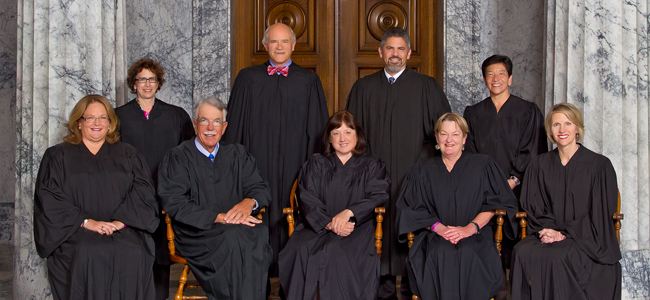
By Anthony Broadman
The Washington State Supreme Court held yesterday that when a tribal corporation contractually waives its sovereign immunity and consents to state court jurisdiction, Washington courts have jurisdiction over lawsuits arising out of that contract.
The Court’s holding in Outsource Services Management, LLC v. Nooksack Business Corporation comes as no surprise—in fact, the Court of Appeals decision below probably should not have been appealed. But the reasoning employed by the majority to get to this unsurprising result should guide and caution contracting parties operating under Washington law.
Moving forward tribes, tribal entities, and their business partners must operate under the assumption that a lawsuit arising out of a contract containing a waiver of sovereign immunity and consent to state court jurisdiction will likely fit squarely in a state forum. Presumably, most tribes were already operating in this reality. Here, of concern, the majority in Outsource relied on Powell v. Farris, a 1980 state Supreme Court case that extended state court jurisdiction to business dissolution dispute involving a contract formed off reservation, between a tribal member and a non-Indian business partner.
Notably, there was no reservation land at issue in Powell. In Outsource—where there was, arguably, reservation land at issue—the Court expanded Powell to state the rule that “Washington State courts generally have jurisdiction over civil disputes in Indian country if either (1) [there is Public Law 280 jurisdiction] or (2) asserting jurisdiction would not infringe on the rights of the tribe to make its own laws and be ruled by them.”
The lesson here is that Tribes who want their judiciaries to have strong bases for jurisdiction can ensure that inappropriate assertions of jurisdiction do “infringe on the rights of the tribe to make its own laws and be ruled by them” through express legislation.
In sum, once a tribal entity has waived sovereign immunity and consented to state court jurisdiction, there is little to fight about regarding jurisdiction. Outsource unfortunately gave the Court the opportunity to write a somewhat clumsy “general rule” that now must be followed when drafting dispute resolution provisions.
The dissenters disagreed with the majority in two important ways. Justices McCloud and González did not believe the Tribe had actually consented to state court jurisdiction. Further, the dissenters would require an express “waiver of jurisdictional issues” pursuant to Williams v. Lee.
Following Outsource, the very rough voting patterns of the Washington State Supreme Court in modern Indian law cases, are as follows:
Anthony Broadman is a partner at Galanda Broadman PLLC. He can be reached at 206.321.2672, anthony@galandabroadman.com, or via www.galandabroadman.com.





